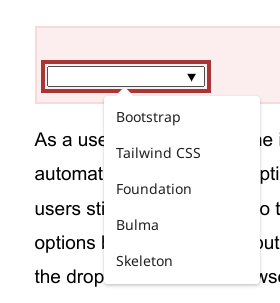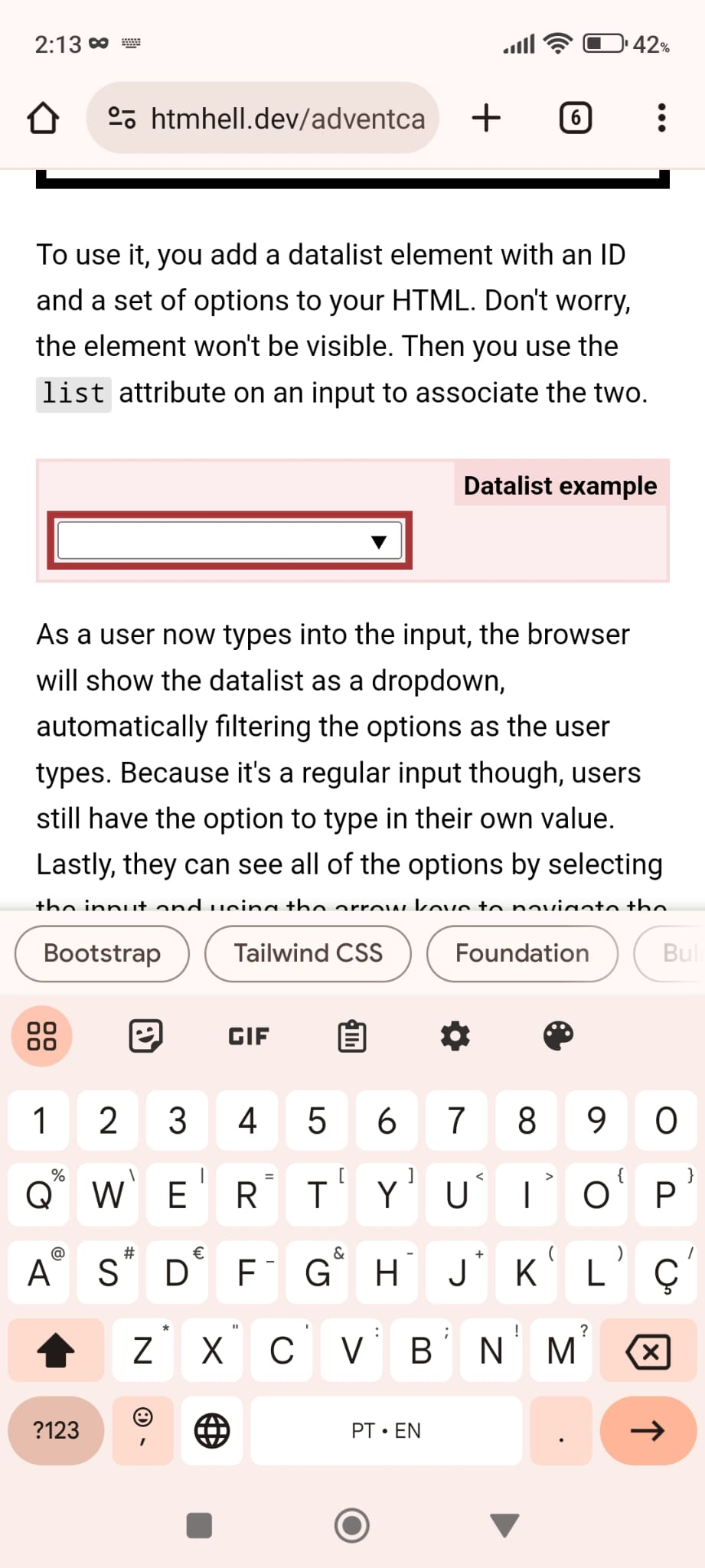

One that is written in C and also has a Python module: https://aubio.org/


One that is written in C and also has a Python module: https://aubio.org/


Not a fan of datalist:
select:
Somewhat liked Chrome’s implementation in Android:

I don’t agree with the problem they aim to solve with those goals.
But today it takes several years of mastering tools and frameworks to get to that stage. HTML First principles should allow people to unlock that feeling, and level of mastery, much earlier on in their coding journey.
The onboarding process can be made easier for devs new to the project (junior or senior) with decent documentation. Just enough install/build the project in their local machine and understand the gist of the technologies.


I don’t have much experience using srcset but since you are still waiting for an answer… I’ll point you to what is stated in MDN’s docs.
According to that, you use a “media condition” when the image is displayed in different sizes. Their example
And you use 1x, 2x, etc (like your examples) when the image will occupy the same physical size.


you can easily forget to catch it and handle it properly
Even if I coded the form by hand and that happened, it’s on me, not on the programming language.
But I don’t, I use a framework which handles all that boilerplate validation for me.


When you say user, you mean a user of a function? In that case PHP would throw a TypeError, and presumably only happens when developing/testing.
If you mean in production, like when submitting a form, an Exception may be thrown. In which case you catch it and return some error message to the user saying the date string is invalid.


My point is, you won’t ever try. You’d only use “weak” variables inside the function you’re working on.
It’s explicit when you absolutely need it to be, when the function is being called and you need to know what arguments to pass and what it’ll return


I like it in modern PHP, it’s balanced. As strict or as loose as you need in each context.
Typed function parameters, function returns and object properties.
But otherwise I can make a DateTime object become a string and vice-versa, for example.
Fellow PT-PT ISO user here. And although I use PT-PT in the OS, both my mechanical keyboards’ physical layout is DE ISO, which has most special symbols in the same place. (finding DE keyboards is easier)
I’ve considered switching to UK ISO before. Typing brackets “
[] {}” and a semicolon “;” is harder in PT-PT. Especially the curly brackets{}, which are really awkward to type with my small hands.